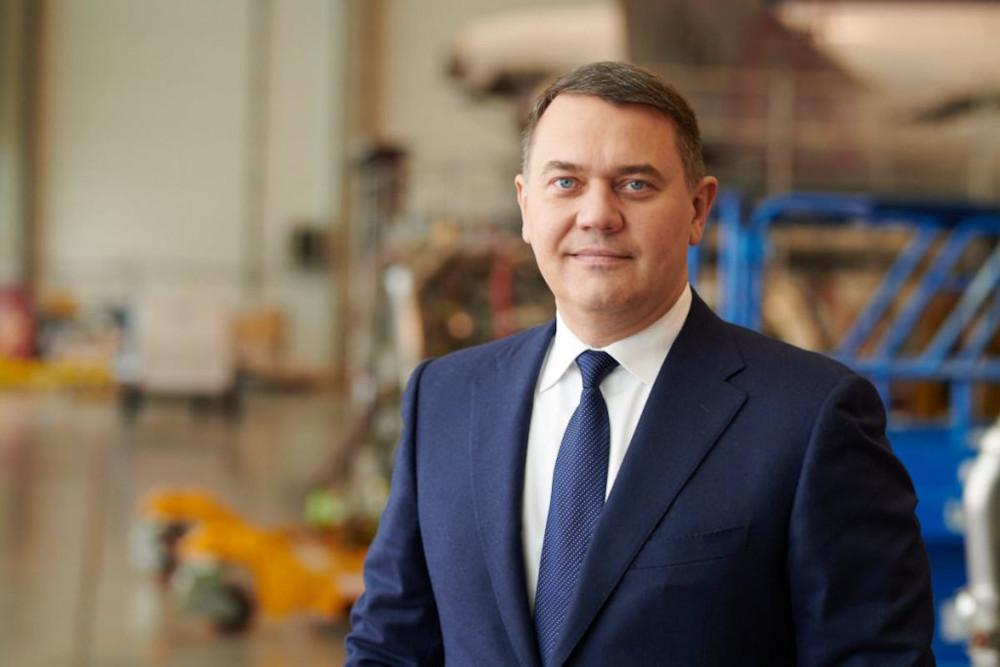
Zilvinas Lapinskas, CEO of FL Technics, talks to James Pozzi about the impact of the Russian-led conflict in Ukraine on its operations and how establishing a new wheels and brakes business in Germany could signal the start of further expansion.
How are you seeing Europe's commercial aftermarket recovering so far in 2022?
Speaking to customers, they are seeing strong bookings for airline travel during the upcoming summer months and a lot of people are keen to fly. Challenges are occurring with some airports facing long queues due to issues such as staffing. Leasing companies are starting to make decisions about parked aircraft and address issues such as whether an aircraft will be torn down to sell for parts or will return to service with another airline operator. There is a more clear picture of which direction the aviation industry is moving in—and it is generally moving in a good direction. I am optimistic about this summer and going into next year.
How is the Russian invasion of Ukraine impacting on business?
Since Feb. 24 and the outbreak of war in Ukraine, there have been interruptions as a result, however, these have calmed to some degree over the past few weeks. Russia and Ukraine are both quite important markets for us in terms of revenue—the planned revenue was around 10% from those two countries for the year 2022. Our airline customers from both countries numbered up to 20 carriers.
Why did FL Technics set up a wheels and brakes business and why did it choose Hanover, Germany as its location?
We had a wheels and brakes business in Vilnius and had been developing that capability with Small Planet Airlines since 2015, before its bankruptcy. This was an interesting business, but as we further developed it and added more customers, this came with challenges such as expensive logistics costs. Shipping parts and materials from a shop in Vilnius to other locations around the world came with costs and ate into profits. So, we decided to be closer to some of our main wheels and brakes customers and explored opportunities, which led to getting the contract to take over [the] wheels and brakes shop in Hanover.
We are participating in different tenders and talking to customers, as there are a lot of changes in the wheels and brakes aftermarket landscape in Europe—some are either closing after the COVID-19 pandemic or restricting their business. Some maintenance contracts are also coming to an end, and with new tenders being announced, we are participating. This is the start and we have more plans for investment and will look to set up new shops and maybe acquire more business specialists.
Will this be through more M&A activity or the formation of partnerships similar to the one recently signed with aircraft parts and composites repair specialist Setaero?
In terms of M&A, we are working on the acquisitions of companies in different parts of the world. There is a dedicated team in the AVIA Solutions parent group doing analysis and looking at a lot of potential targets for opportunities in joining the group. These acquisitions would aim to get the synergies that are a benefit from multiple companies working in one big group. This is being worked at the minute, but there are various confidentiality agreements in place.
In terms of partnerships, we are always looking for opportunities. We’d been doing business with Setaero for a few years and there was a mutual happiness with the quality of work as well as the pricing. The idea of this partnership is to be closer to customer inventory, as it costs to fly parts from the U.S. to Europe and sometimes airlines need these much more quickly. This partnership means more investment in more parts stock and keeping nacelles and structures components in Europe.
The labor market in Eastern Europe has changed with the region being seen as less of a low-cost location due to rising prices. Where do you see the labor market challenges in the long-term?
The biggest challenge is in mechanics. They can find work in other areas such as construction, warehouse or even in other transport industries. During COVID, some of these mechanics chose to leave and change their profession. Here in Lithuania, we are working on the question, asking how do we make the aircraft maintenance profession as interesting as we can. For young people, it is really important to explain what the profession [entails], how to do it well and what the best career path is for them.
Often, the biggest challenge in young people is that they may want to make good money now and not in two to five years’ time. I liken it to becoming a doctor—you cannot become a doctor in one year and it takes time. But when you reach the level and are a qualified professional, you can make good money and travel overseas to work also. If you are a good professional you can find a place to work in almost any country. When you have all the necessary approvals, every MRO is looking to employ good quality engineers.
Labor costs in Europe are growing and will continue to do so. How we can deal with that, I’m not sure. We can raise prices with customers, but that won’t be a long-term option as we are an independent MRO and have to fight for our customers. We must work on efficiencies, making MRO more paperless and more effective while investing in new technologies and tools.





